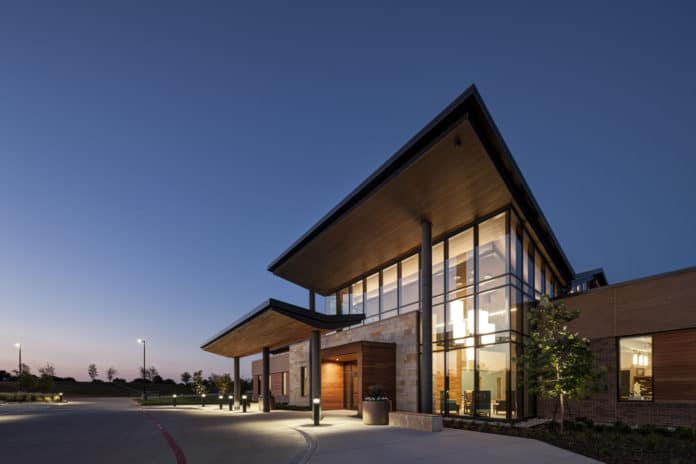There’s a new urgency, focus and discussion on mental health. In order to change the way people see mental health, we need to transform the way they see treatment spaces.
May was Mental Health Awareness Month and Texas is currently experiencing a mental health care crisis.
With a significant shortage of inpatient beds available, patients are forced to emergency departments unequipped to handle the need.
Or worse, patients are put in jail, where they may not belong as low-level offenders, due to exhausted police resources and a lack of general understanding of the treatment necessary.
While the Dallas-Fort Worth area has made great strides to improve help available through community outreach services, telehealth, new providers and mental health first aid training, lingering problems and questions remain.
How can we accommodate the recent population boom when the area is already underserved? And furthermore, how can we reduce the stigma around seeking treatment when it’s needed?
I argue that in order to change the way people see mental health, we need to transform the way they see treatment spaces.
I recently attended a workshop in Los Angeles sponsored by the Center for Health Design to share ideas and lessons learned among experts in the field of behavioral-health design.
Historically, the United States has not been a leader in the design of therapeutic facilities for a variety of reasons, but events such as this are calling attention to the importance of designing this type of environment.
Some of the topics discussed at the workshop include the benefits of the patient experience, “hybridity” of nurse care station styles and the blurred line of balance between safety and risk.
Thoughtfully designed spaces have the ability to empower patients, foster feelings of independence and dignity as well as encourage or discourage certain behaviors. Examples of impactful design elements include vibrant colors, views and access to the landscape and a simple delineation of personal versus social interaction space.
Committed to designing solutions in addition to designs, The Beck Group is leading the evolution of behavioral health care through innovative concepts and designs.
At the Texas Health Recovery and Wellness Center in Mansfield, celebrating its second-year anniversary in May, The Beck Group designed and built a new prototype for wellness.
The long-term residential substance abuse treatment center is unlike others, as it sets patients on a path to recovery through a serene campus with nature-connected amenities. With 80 beds on 25 acres, the project is grounded with evidence-based design ideas to create a positive and engaging patient experience.
Beck understands the psychology behind the design of health care settings that can significantly impact patient healing and stress levels, patient and staff safety and the quality of care provided. The Beck Group understands the need for designers to reframe their roles as an extension of the care team.
Moving forward, design is only part of addressing the stigma around mental health treatment.
There needs to be a collaboration among community and government partners, education and training in schools and greater access to better facilities for treatment. Fortunately, SB-11, passed during the recent legislative session, has been sent to Gov. Greg Abbott, who has labeled the bill a top priority.
The bill calls for the creation of the Texas Child Mental Health Care Consortium and devotes $100 million in funding for various other initiatives championed after the Santa Fe High School shooting last year.
Alison Leonard is Healthcare Senior Project coordinator and Behavioral Health Design lead at The Beck Group in Dallas. www.beckgroup.com






